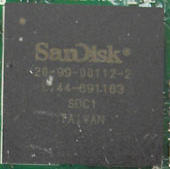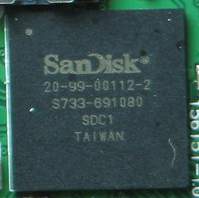It is with interest we in the Rockbox camp checked out the recent battle in Creative land where they shot down a firmware (driver really) hack by the hacker Daniel_K as seen in this forum thread.
We’re of course interested since we do a lot of custom firmwares for all sorts of targets by all sorts of companies, and recently there are efforts in progress on the Creative series of players so could this take-down move possibly be a threat to us?
But no.
In the Rockbox community we have already since day one struggled to never ever release anything, not code nor images or anything else, that originates from a company or other property owner. We don’t distribute other’s firmwares, not even parts of them.
For several music players the install process involves patching the original firmware file and flashing that onto the target. But then we made tools that get the file from the source, or let the user himself get the file from the right place, and then our tool does the necessary magic.
I’m not the only one that think Daniel Kawakami should’ve done something similar. If he would just have released tools and documentation written entirely by himself, that would do the necessary patching and poking on the drivers that the users could’ve downloaded from Creative themselves, then big bad Creative wouldn’t have much of legal arguments to throw at Daniel. It would’ve saved Daniel from this attack and it would’ve taken away the ammunition from Creative.
I’m not really defending Creative’s actions, although I must admit it wasn’t really a surprising action seeing that Daniel did ask for money (donations) for patching and distributing derivates of Creative’s software.
So far in our 6+ years of history, the Rockbox project has been target of legal C&D letter threats multiple times, but never from one of the companies for which targets we develop firmwares for. It has been other software vendors: two game companies (Tetris Company and PopCap games) fighting to prevent us from using their trademarked names (and we could even possibly agree that our name selections were a bit too similar to the original ones) and AT&T banning us from distributing sound files generated with their speech engine software. Both PopCap and Tetris of course also waved with laywers saying that we infringed on their copyrights on “game play” and “look” and what not, but they really have nothing on us there so we just blanked-faced them on those silly demands.
The AT&T case is more of a proof of greedy software companies having very strict user licenses and we really thought we had a legitimate license that we could use to produce output and distribute for users – sound files that are to a large extent used by blind or visually impaired users to get the UI spelled out. We pleaded that we’re an open source, no-profit, no-money really organization and asked for permission, but were given offers to get good deals on “proper” licenses for multiple thousands of dollars per year.
Ok, so the originating people of the Rockbox project is based in Sweden which may also be a factor as we’re not as vulnerable to scary US company tactics where it seems they can sue companies/people who then will have to spend a fortune of their own money just to defend themselves and then you have to counter-sue to get any money back even if you were found not guilty in the first case. Neither is Rockbox an attempt to circumvent any copy protections, as if it were it would have violated laws in multiple countries and regions. Also, reverse engineering is perfectly legal in many regions of the world contrary to what many people seem to believe.
If this isn’t sticking your chin out, then what is? 😉
Update 4-apr-2008: Creative backpedals when their flame thrower backfired.





 considerably to a European student as last year’s students got about 3500 Euros but the same amount of USD is currently worth not more than about 2800 Euros. And remember that this is payment for a supposedly full-time work during twelve weeks. Ok they’re students and everything ,but still… and this 700 Euro drop (ok since currencies fluctuates it may be more or less at the end of the summer) may in fact be a contributing factor why less students apply.
considerably to a European student as last year’s students got about 3500 Euros but the same amount of USD is currently worth not more than about 2800 Euros. And remember that this is payment for a supposedly full-time work during twelve weeks. Ok they’re students and everything ,but still… and this 700 Euro drop (ok since currencies fluctuates it may be more or less at the end of the summer) may in fact be a contributing factor why less students apply.


